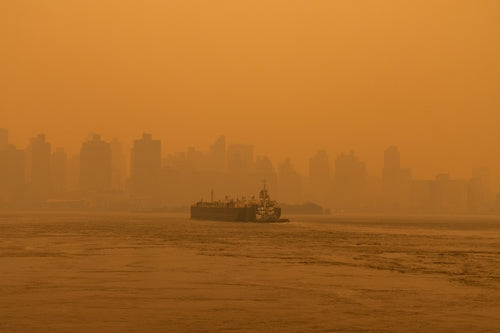As we move forward in a technologically advanced world, the deterioration of the quality of the environment has become one of the significant challenges. The air we breathe is a crucial aspect of our daily life, affecting our health and wellbeing. The air quality index plays an essential role in assessing the quality of the air around us. In this blog post, we will discuss what air quality means, factors affecting air quality, and how we can tell when it's time to worry.
Air quality refers to the measure of pollutants present in the air. It is measured through the Air Quality Index (AQI). The AQI provides information on the adverse effects and possible health effects of the pollutants present in the air. It is based on the major pollutants present in the air, which include sulfur dioxide, carbon monoxide, nitrogen dioxide, ozone, and particulate matter. An AQI reading of 100 is considered to be safe. Higher readings indicate a higher concentration of pollutants, which can cause adverse health effects if not controlled.
Several factors determine air quality, including natural and human-made sources. Some natural sources, such as dust storms, wildfires, and volcanic eruptions, release pollutants into the air, which affect air quality. However, human-made sources, including factories, vehicles, and power plants, emit high levels of pollutants into the environment. These sources pose significant threats to the quality of the air we breathe.
Several signs indicate that it's time to worry about air quality. One of the most common signs is smog, which is a hazy look in the sky caused by pollution. Smog contains a mixture of pollutants, including nitrogen dioxide, sulfur dioxide, and carbon monoxide. It can cause eye irritation, lung irritation, and difficulty breathing. Another sign is poor visibility caused by pollutants. High levels of pollutants in the air reduce visibility, making it difficult to see objects in the distance. Additionally, uncontrolled coughing, shortness of breath, and difficulty breathing are all signs that air quality is poor.
Protecting yourself from poor air quality is crucial in maintaining good health. One of the most effective ways to protect yourself is to minimize your exposure to pollutants. This involves staying indoors and avoid going outside when the AQI is high. Additionally, wearing a mask can reduce exposure to pollutants, making it easier to breathe. If you're prone to respiratory problems, it's essential to keep inhalers and other medication close by to manage any symptoms that may arise.
Air quality is an essential aspect of human health. Poor air quality can lead to respiratory problems and other health issues. Understanding what air quality means and the factors affecting it are important in determining when it's time to worry. Knowing how to protect yourself from poor air quality is crucial in maintaining good health. By following the steps outlined above, we can all play a role in reducing the level of pollution in our environment and ensuring that air quality is at a safe level.









